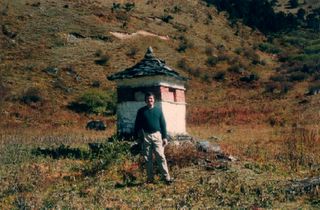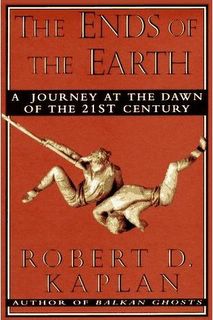Didn't blog much in May, but now I am adding some excerpts from a Gore Vidal interview I found on the web. Usually each week I try to check what Hendrick Hertzberg at the New Yorker, or Sidney Blumethal at Salon.com are saying. Vidal or course is now an Elder man of letters, and always has his own unique take on these United States, especially considering his deep, and long developed study of U.S. History.
The interviewer is Kam Williams, and it was found over at:
http://eurweb.com/story/eur26667.cfm . Here is a sample:
"KW: How would you describe the State of the Union?
GV: This is an Empire gone berserk. You've got a President who had every intention of militarizing the economy and militarizing the society. This had nothing to do with governance. He was mostly smearing people who pointed out his shortcomings. Now we don't have the money anymore… We don't have the will… People are disgusted… Katrina has turned off half a nation… And there's all the nonsense about borders… and so on… This is the worst period that I've ever seen for the United States. And Marcy Winograd, at least, is a good candidate who is intelligent.
KW: What do you think was Bush's agenda for this Presidency he wanted by any means necessary?
GV: To give his corporate friends jobs and tax cuts, from the oil people to General Electric. To make sure Halliburton wouldn't have to bid on its contracts to rebuild a country we first knocked-down with our tax dollars.
KW: By deliberately ruining Iraq so war profiteers could rebuild its infrastructure, he ended up ruining this country in the process, given the record federal deficit, which is why so much of the Gulf Region looks the same as the day after Hurricane Katrina hit. I wonder whether Bush has a sense of the irony about that.
GV: He has no sense at all. That's the problem. I don't think he deliberately set out to wreck the United States, but he has. It'll take two generations to get this country back, if we can ever get it back.
KW: Why aren't the people up in arms?
GV: Acquiescence. What used to be called citizens are now just a bunch of consumers waiting to be told what to do next, and automatically voting, even though they know the machinery is going to reverse their vote. We've lost too much in the way of the Bill of Rights.
KW: How do you think Bush feels about his disastrous Presidency?
GV: I don't think he cares. There are so many different kinds of stupidity. In American politics, you get to meet every kind. But he's a little exceptional. Very few politicians who got to be president are as ignorant as he is. Usually, they knew something about economics, something about the world works. I would say even some of them have a bit of conscience, not much, not much, and talk about impossible dreams. Aside from ambition, they do have an idea that they're going to serve a certain group.
KW: How has this played out with Bush?
GV: So, if there's a really difficult job, like running FEMA, you pick the dumbest person you know, because he's a really good guy. To watch Bush do this time and time again, I sit there and my jaw drops. Each time he does it he's in deeper trouble. He learns nothing.
KW: What will be the Bush legacy?
GV: If you remember, in one of my other books, I prophesied at the time of his election in 2000, "He will leave office the most hated President in our history."
KW: How'd you know?
GV: I put it together just from things he was saying along the way and from what I knew of his career in Texas."




